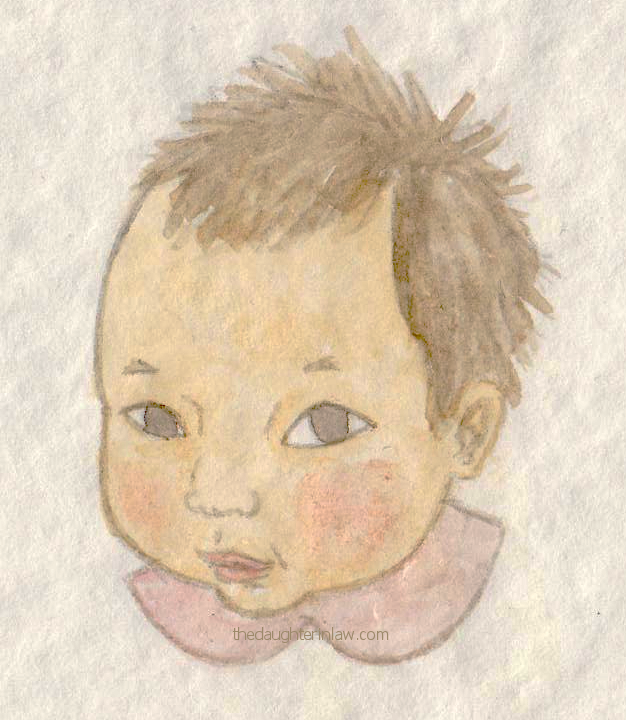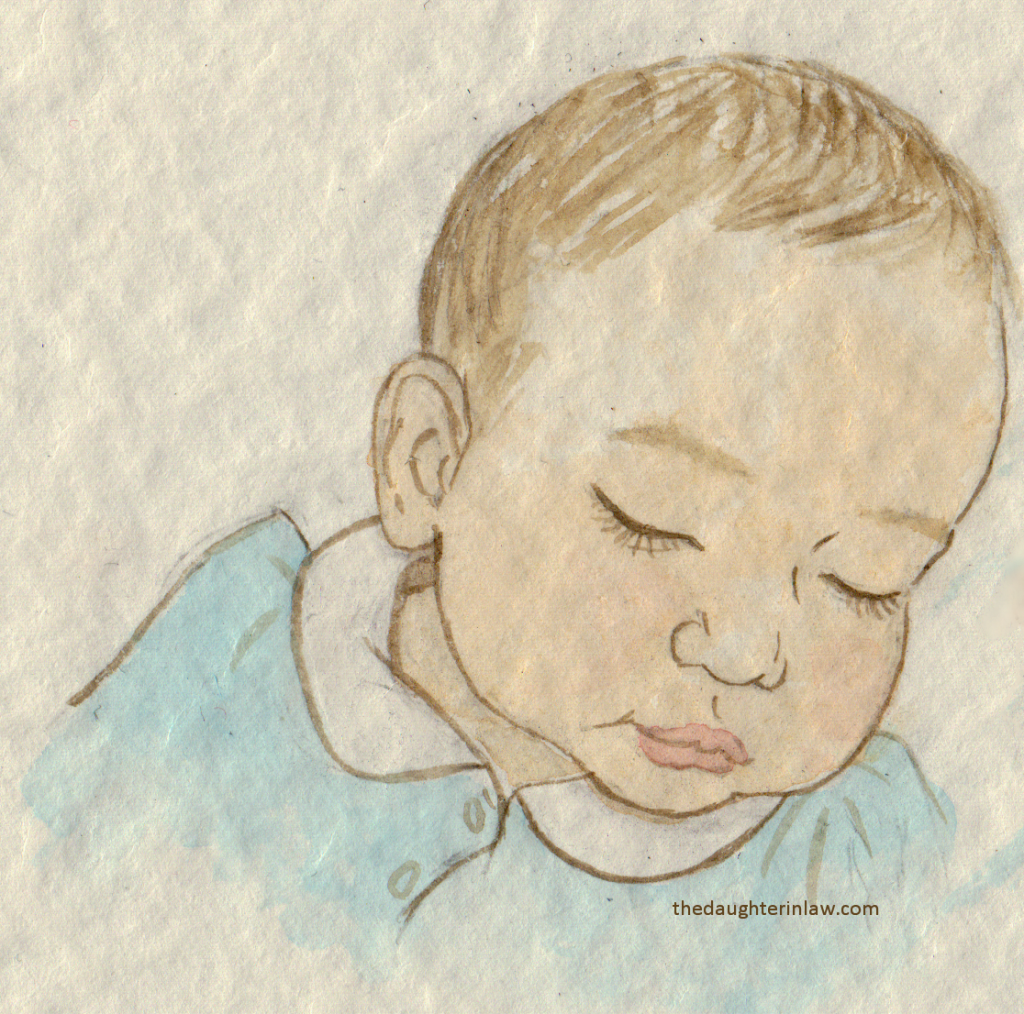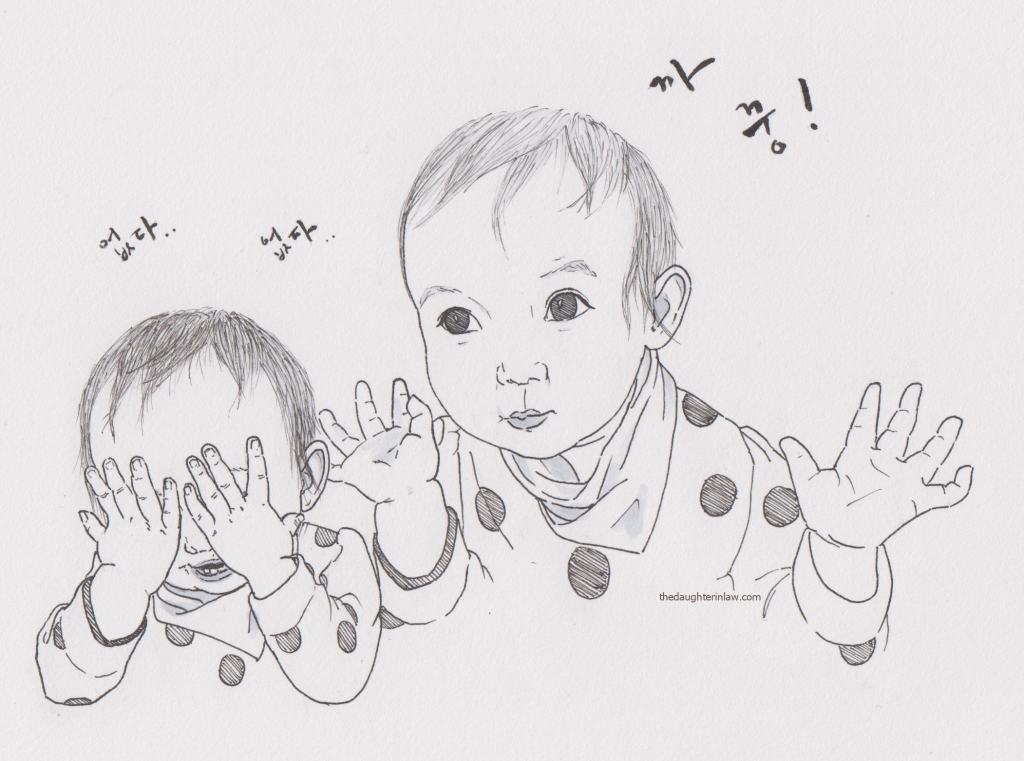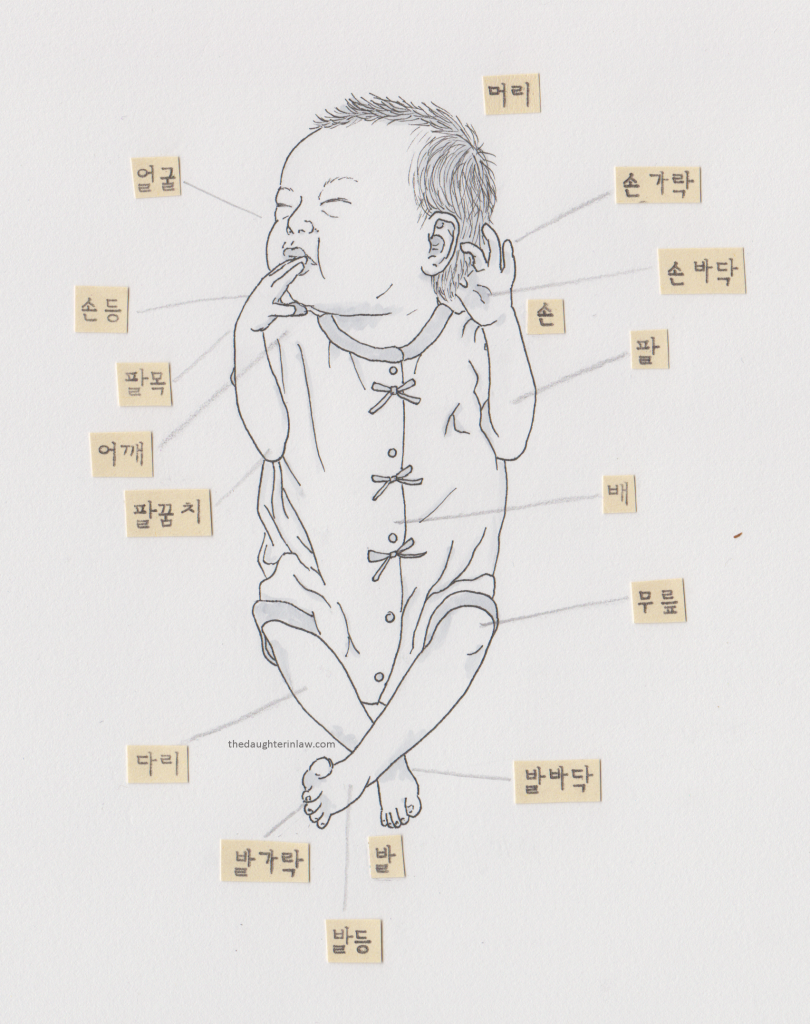 If you do not use Korean very much in your every day life, it is unlikely that you will be able to immediately chatter away in Korean to your new baby. I have been speaking to Alice in Korean since her birth, but it was a gradual phase in, using Korean and English until 9 months, when I committed to using Korean with her at least 95% of the time (you have to take into account that friends and relatives and strangers will use the community language and sometimes it will seem more appropriate to use a little of that language in such situations.)
If you do not use Korean very much in your every day life, it is unlikely that you will be able to immediately chatter away in Korean to your new baby. I have been speaking to Alice in Korean since her birth, but it was a gradual phase in, using Korean and English until 9 months, when I committed to using Korean with her at least 95% of the time (you have to take into account that friends and relatives and strangers will use the community language and sometimes it will seem more appropriate to use a little of that language in such situations.)
You also might have chosen to use Korean just for certain situations or aspects of parenting (maybe even just singing Korean songs, or using Korean with baby when Korean in laws are visiting, or just at bath time, etc.) which is also fine.
If you are going to use a mix of your native language, and Korean, the most important rule is that you must use only one language per sentence.
It’s probably fine to follow one sentence in your language with a sentence in Korean, for example “What’s this? 연필이에요, 연-필”
But you shouldn’t use sentences like “This is a 연필”
I recommend starting with simple sentences and repeating them often which will help you feel more fluent in saying them. When starting out, I often would practice just saying one sentence to Alice, then trying to say as many similar or related sentences as I could think of
“비가 와요! 비 와! 비가 오는 것 같아! 비가 오는 날이야! 비가 내려요” etc.
My very first goals were to:
1) Improve my proununciation
2) Feel confident speaking or singing in Korean in public
To improve my pronounciation I sang childrens’ songs. I focussed on the vowel sounds, which I think can be an issue for Australian English speakers, and tried to sing all the words very clearly. I also did a lot of listening and mimicking of my husband and others, and asked for feedback often.
As for confidence, I found at first I just had to force myself. A crying baby on the bus is a good imperative to get you over a fear of public singing pretty fast. I opted for the simplest Korean songs I knew first and gradually learnt more.
In using Korean with my baby every day, I have naturally and gradually improved in both skill and confidence, however, it is important to understand that I have continued to study, taking various classes through community organisations, as well as personal, specific study of speaking to babies through my family, community and Korean Playgroup. My study methods have definitely had to adapt to limits of time and situation. I can’t spend a lot of time on the computer or with text books these days, so listening and speaking and ‘field research’ have taken a greater role in my learning, and I’ve actually found this more effective, since I had most of the basics down before Alice was born. (Knowing what a mother’s life can be like, I will try to keep all my lessons on here highly visual, clear and concise!)

 This is a pretty and quite simple lullaby that my mother in law sings to Alice when we are staying in Korea.
This is a pretty and quite simple lullaby that my mother in law sings to Alice when we are staying in Korea.



